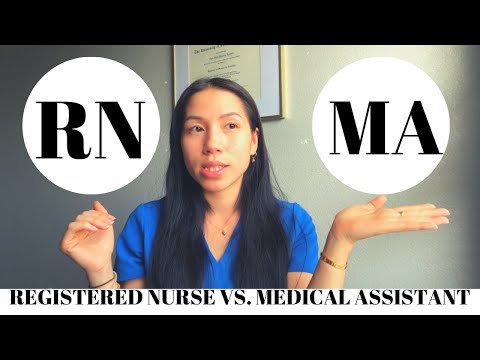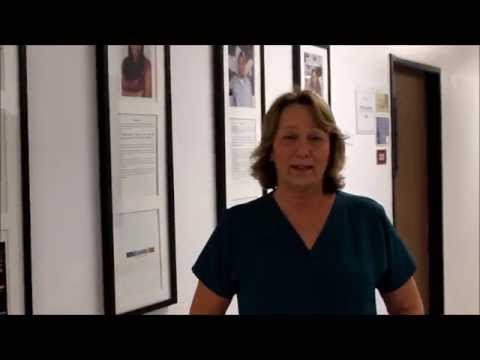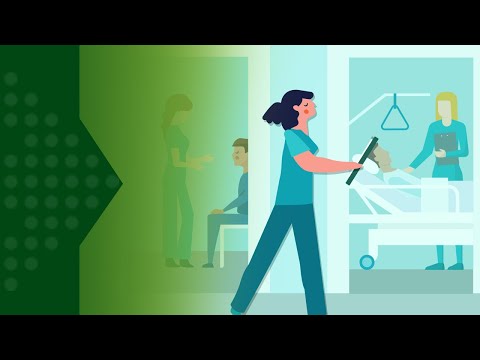Can a Medical Assistant Become a Registered Nurse?
Contents [show]
Can a medical assistant Become a Registered Nurse? The answer is yes! With the right education and training, a medical assistant can make the transition to registered nurse.
Checkout this video:
Can a Medical Assistant Become a Registered Nurse?
Medical assistants perform many of the same duties as registered nurses, but they are not licensed to practice nursing. In order to become a registered nurse, Medical assistants would need to complete an accredited nursing program and pass the NCLEX-RN exam.
The Role of a Medical Assistant
Medical assistants are unlicensed professionals who perform administrative and clinical tasks in hospitals, ambulatory care centers, and physician offices. They work under the supervision of licensed health care providers, such as physicians and registered nurses. Medical assistants typically have an associate degree or certificate from an accredited program.
While most medical assistants perform both administrative and clinical tasks, some may specialize in one area or the other. Clinical medical assistants, for example, may take vital signs, administer injections, prepare patients for examinations, and collect lab specimens. Administrative medical assistants handle tasks such as handling correspondence, scheduling appointments, and billing insurance companies.
Registered nurses (RNs) are licensed health care professionals who provide direct patient care and oversee the care of others. RNs can specialize in a particular area of nursing practice or work in a variety of settings. RNs must have a minimum of an associate degree in nursing; however, many RNs have a bachelor’s degree or higher.
The Education and Training Required to Become a Medical Assistant
Medical assistants are in demand and the field is expected to grow by 29% from 2019 to 2029, according to the U.S. Bureau of Labor Statistics.1 If you’re considering a career as a medical assistant, you may be wondering if you can use your experience and training to become a registered nurse (RN).
The short answer is yes, but it will take some additional education and training. RNs have more responsibilities than medical assistants, and they must be licensed by the state in which they practice. RNs also have the option of specializing in a particular area of nursing, such as pediatrics or geriatrics.
Here’s what you need to know about becoming an RN, including the education and training requirements.
Education Requirements
To become an RN, you must first earn a nursing diploma or degree from an accredited nursing program. You have several options for meeting this requirement:
-You can earn an Associate Degree in Nursing (ADN) from a community college or technical school. This program typically takes two years to complete.
-You can earn a Bachelor of Science in Nursing (BSN) from a four-year college or university. This program typically takes four years to complete.
-You can earn a diploma from an accredited nursing program at a hospital, which typically takes three years to complete.
Once you have earned your nursing diploma or degree, you must then pass the National Council Licensure Examination (NCLEX-RN). This exam is administered by the National Council of State Boards of Nursing (NCSBN) and is used to determine if you have the knowledge and skills necessary to become an RN.
The Job Duties of a Medical Assistant
Medical assistants typically perform both clinical and administrative tasks in a healthcare setting. They might take medical histories and record vital signs, explain treatment procedures to patients, prepare patients for examination, authorize insurance forms, and schedule appointments.
With additional training, medical assistants can specialize in various areas of medicine, such as ophthalmology or orthopedics. Some states allow medical assistants to perform more advanced tasks, such as giving injections or helping during minor surgery.
The Work Schedule of a Medical Assistant
The work schedule of a medical assistant can vary depending on the type of facility they work in. Some medical assistants work in hospital settings, while others may work in clinics or doctor’s offices. There are also some medical assistants who work in Home Health Care settings. The hours that a medical assistant works will also vary depending on their job duties. Some medical assistants may work full time, while others may only work part time.
The Salary and Benefits of a Medical Assistant
Medical assistants are allied health professionals who support the work of physicians and other health care providers. They typically work in outpatient facilities, such as medical offices and clinics, and perform administrative and clinical tasks. Although their duties vary by state, medical assistants usually take medical histories, help patients prepare for examinations, assist with procedures, schedule appointments, bill insurance companies, and do other office work. Some medical assistants also perform basic laboratory tests, give injections, remove sutures, apply dressings to wounds, take electrocardiograms (EKGs), remove stitches, check patients’ vital signs (weight, blood pressure, temperature), or educate patients about medications and diet.
The Career Outlook for Medical Assistants
Medical assistants are in high demand. The Bureau of Labor Statistics projects that employment of medical assistants will grow by 29 percent from 2016 to 2026, much faster than the average for all occupations.1
With such a rapidly growing career field, many medical assistants may be wondering if they can use their experience and training to become a registered nurse (RN). The answer is yes, but it will take some additional education and training.
Becoming an RN requires completing an accredited nursing program and passing the NCLEX-RN exam.2 Many nursing programs offer an accelerated track for students who already have a bachelor’s degree in another field, which can shorten the amount of time it takes to become an RN.3
Students in nursing programs take classes such as anatomy, physiology, microbiology, and pharmacology.4 They also complete clinical rotations in various medical settings, such as hospitals, clinics, and long-term care facilities.5 After successfully completing a nursing program and passing the NCLEX-RN exam, new RNs must obtain a license from their state’s Board of Nursing.6
Once they have met all requirements and obtained their license, medical assistants who become RNs can work in a variety of settings, including hospitals, physicians’ offices, home health agencies and long-term care facilities.7 They may also choose to specialize in a particular area of nursing, such as pediatrics or geriatrics.8
The career outlook for RNs is also very positive—the BLS projects that employment of RNs will grow by 15 percent from 2016 to 2026.9 With their experience in patient care and knowledge of medical procedures and treatments, medical assistants who become RNs will be well-prepared to meet the demands of this growing occupation
The Pros and Cons of Being a Medical Assistant
The medical field is growing rapidly, and with that growth comes a demand for more medical assistants. But what does it really take to be a medical assistant? Can a medical assistant become a registered nurse?
Medical assistants are vital members of the healthcare team. They provide administrative and clinical support to physicians, nurses, and other healthcare professionals. In most states, they must have a high school diploma or equivalent, although some states require completion of an accredited medical assistant program.
While medical assistants do not need to be licensed or certified, many choose to become certified by the American Association of Medical Assistants (AAMA). To be eligible for certification, candidates must pass the AAMA Certification Examination.
The AAMA offers two levels of certification: Certified Medical Assistant (CMA) and Registered Medical Assistant (RMA). CMAs are required to complete an accredited medical assistant program, while RMAs must have at least five years of experience working as a medical assistant. Both CMAs and RMAs must pass the AAMA Certification Examination.
Once certified, medical assistants can use the title “CMA” or “RMA” after their name. Certified Medical Assistants are also required to recertify every 60 months by completing continuing education credits or retaking the AAMA Certification Examination.
Becoming a registered nurse requires completing an accredited nursing program and passing the National Council Licensure Examination for Registered Nurses (NCLEX-RN). Registered nurses must also be licensed by their state board of nursing. In most states, licensure requires successful completion of an approved nursing program and passing the NCLEX-RN exam. Some states also require registered nurses to complete continuing education credits to maintain their license.
So, can a medical assistant become a registered nurse? While it is possible for a medical assistant to become a registered nurse, it is important to note that there are differences between the two roles. Medical assistants provide support to physicians and other healthcare professionals, while registered nurses provide direct patient care.
10 Reasons to Become a Medical Assistant
Medical assistants are in high demand across the United States In order to become a medical assistant, you will need to complete an accredited medical assisting program and pass a certification exam. Once you have completed these requirements, you will be eligible to work in a variety of healthcare settings, including hospitals, clinics, and physician’s offices.
There are many reasons why you should consider becoming a medical assistant. Here are 10 reasons why you should become a medical assistant:
1. Medical assistants are in high demand.
2. Medical assistants can work in a variety of healthcare settings.
3. Medical assistants can specialize in a particular area of medicine.
4. Medical assistants earn a competitive salary.
5. Medical assistants have the opportunity to advance their career.
6. Medical assistants receive comprehensive benefits packages.
7. Medical assistants have flexible working hours.
8. Medical assistants can work part-time or full-time hours.
9. Medical assistants can pursue further education while working full-time hours
5 Reasons Not to Become a Medical Assistant
Though becoming a medical assistant may seem like a direct path to becoming a registered nurse, there are several reasons why this may not be the best career move. Here are five reasons not to become a medical assistant:
1. Medical assistants are in demand, but registered nurses are in even higher demand.
2. Registered nurses make significantly more money than medical assistants.
3. Medical assistants may be asked to do tasks that are beyond their scope of practice, such as giving injections or drawing blood.
4. Medical assistants usually work in doctor’s offices or clinics, while registered nurses can work in a variety of settings.
5. It takes longer to become a registered nurse than it does to become a medical assistant.







